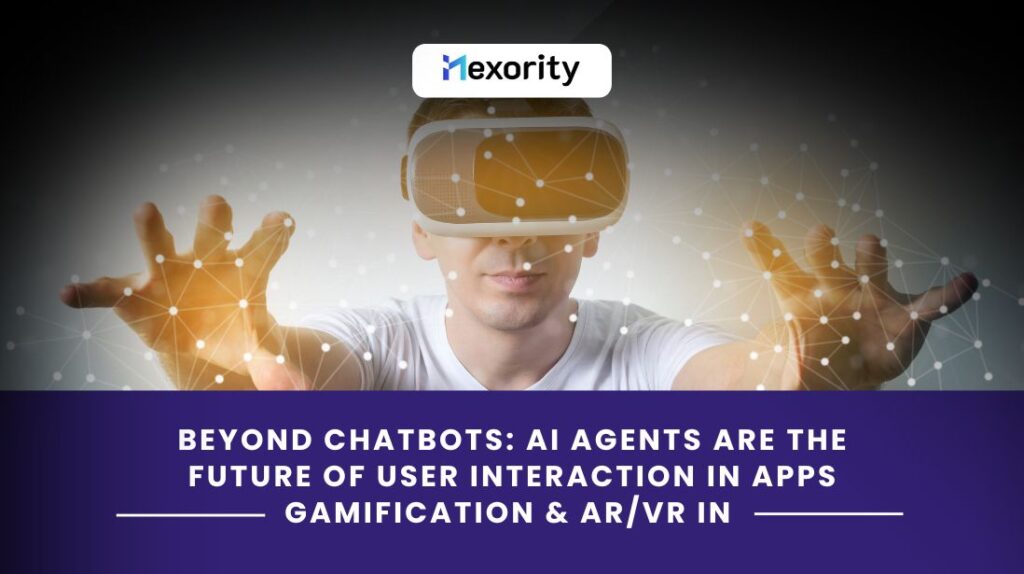Ed-Tech
Beyond Chatbots: AI Agents Are the Future of User Interaction in Apps

From Chatbots to Intelligent AI Agents
Chatbots were once hailed as the future of user interaction—delivering automated replies, basic customer service, and 24/7 availability. But in 2025, they’re being overtaken by something more powerful: AI agents.
Unlike traditional rule-based bots, AI agents are autonomous, context-aware digital entities capable of reasoning, learning, and executing tasks independently. As app experiences evolve, these agents are reshaping how users interact with software—from passive conversations to proactive assistance.
Why AI Agents Are Replacing Traditional Chatbots
Evolving User Expectations
Today’s users expect more than just predefined replies. They want intelligent, natural interactions, personalized suggestions, and task completion—all in real time.
The Rise of Generative AI and LLMs
Large Language Models (LLMs) like GPT-4, Claude, and Gemini power AI agents with advanced contextual understanding, memory, and decision-making capabilities far beyond scripted bots.
App Ecosystem Integration
AI agents aren’t siloed. They’re embedded across app layers—from UI to backend—triggering workflows, retrieving data, and making autonomous decisions.
How AI Agents Work: Core Capabilities and Technologies
Autonomy and Multi-Step Reasoning
AI agents can break down complex tasks into sub-tasks, execute them in sequence, and learn from outcomes—making them more reliable than reactive bots.
Context Retention and Long-Term Memory
Unlike traditional bots that forget prior messages, AI agents maintain session memory and even long-term user preferences, enabling deeper personalization.
Integration with APIs, Tools, and Data Sources
Agents can fetch reports, schedule meetings, initiate emails, or even control smart devices—thanks to seamless integration with APIs and internal systems.
Are AI Agents the New UX Layer for Apps?
Moving from Reactive to Proactive Interfaces
AI agents can anticipate user needs based on context. For example, a travel app agent might rebook a flight proactively if delays are detected.
Embedded Agents Within Workflows
Instead of toggling between screens or forms, users simply “ask” the AI agent. It navigates, inputs, and executes—becoming the interface itself.
Personalization at Scale
AI agents personalize UX in real time—offering custom recommendations, adjusting UI elements, and learning from user behaviors to improve future interactions.
Where AI Agents Outperform Chatbots
Complex Decision-Making
While chatbots operate on pre-written flows, agents analyze variables, consider multiple outcomes, and make smart, goal-oriented decisions.
Cross-Function Capabilities
A single AI agent can handle customer support, upsell a subscription, and book appointments—previously requiring multiple apps or departments.
Continuous Learning and Feedback Loops
Modern agents improve over time using reinforcement learning and user feedback—becoming more accurate and effective with each interaction.
Benefits of Integrating AI Agents in Your App
Streamlined User Journeys
With agents handling multi-step tasks, users enjoy faster results with fewer clicks or form-fills—boosting engagement and retention.
24/7 Intelligent Support
AI agents don’t just respond; they understand and resolve—reducing support costs while enhancing satisfaction.
Increased Revenue Opportunities
Proactive agents can identify upselling opportunities, nudge users at the right moments, and improve conversion rates with tailored interactions.
Challenges and Considerations with AI Agent Integration
Ethical and Privacy Concerns
Context-aware agents handle sensitive data. Ensuring compliance with privacy regulations like GDPR and proper consent mechanisms is critical.
Computational and Infrastructure Demands
AI agents powered by LLMs require high compute power, latency optimization, and robust infrastructure for real-time responsiveness.
Designing for Explainability
Users must trust the agent’s decisions. Building transparent, explainable AI responses is key to long-term adoption.
Future Outlook: AI Agents as Digital Co-Pilots
Rise of Multi-Agent Systems
Apps will soon deploy collaborative agents that handle different parts of a workflow—e.g., one agent books travel while another manages expenses.
Blending UI with AI
Traditional UIs may shrink or disappear as voice, intent, and natural interaction replace buttons and menus.
Developer Opportunities in the Agent Ecosystem
Developers will create, train, and maintain specialized agents—opening up new roles like “AI Interaction Architect” or “Agent Behavior Designer.”
Chatbots Were the Beginning—AI Agents Are the Future
We’ve moved beyond scripted conversations. In 2025, AI agents represent the next UX frontier—intelligent, autonomous, and deeply embedded into our digital lives.
Rather than fearing this shift, app developers and product teams should embrace AI agents as powerful enablers of user engagement, automation, and growth.
As technology evolves, so must interaction—and AI agents are leading that charge.


